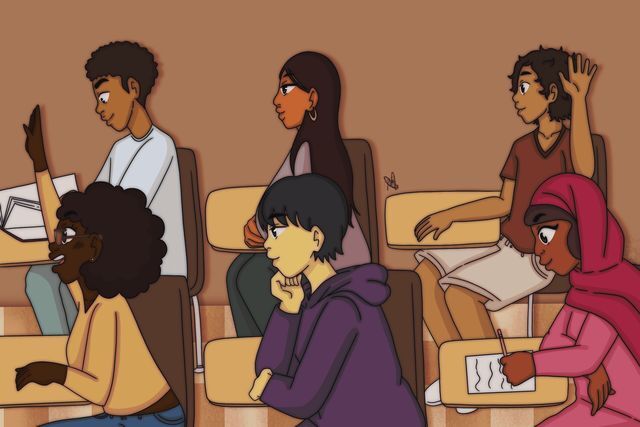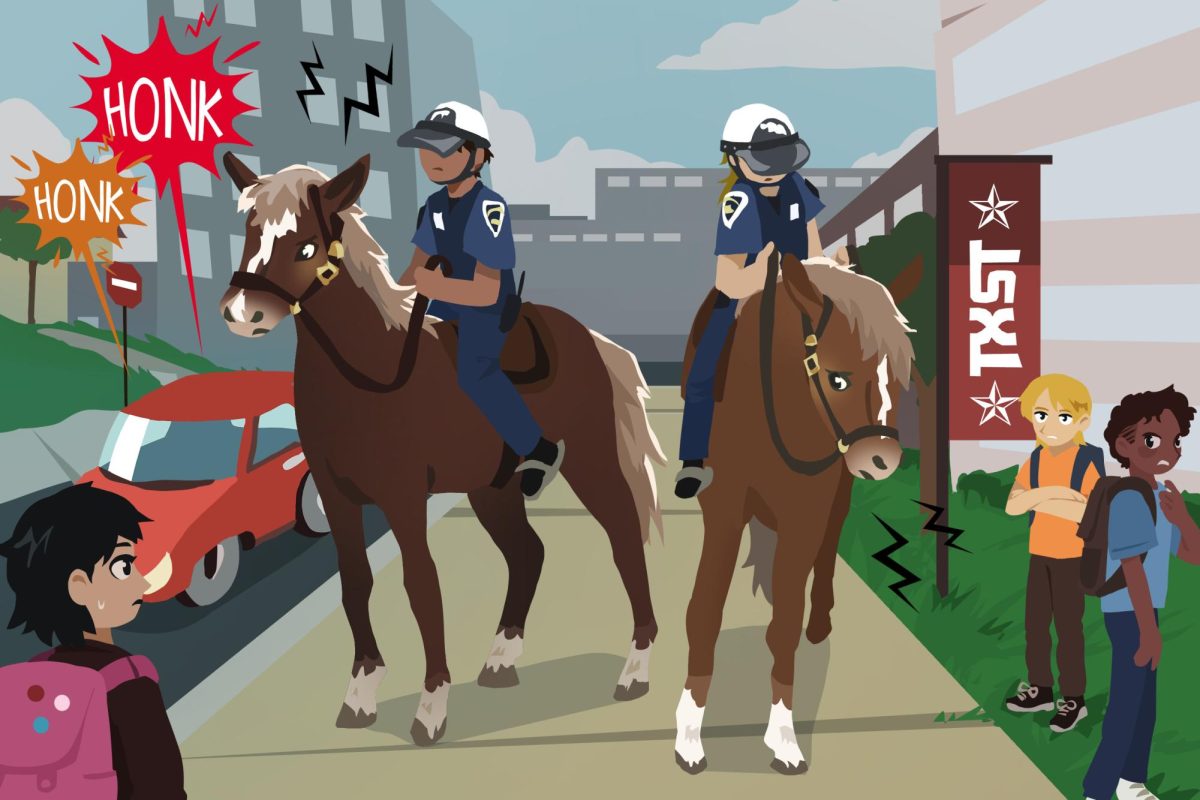House Bill 2497 was signed into law by Gov. Greg Abbott on July 7, creating The 1836 Project. The purpose of this law aims to promote the teachings of state patriotism, but at the cost of limiting the discussion of critical race theories in classrooms and in public spaces.
The newly passed law, which was filed and created by Rep. Tan Parker District 63, seems like the final push to completely erasing all traces of past racial issues in America, more specifically Texas. We live in a climate where race and ethnicity have been at the forefront of everything that happens. Just in 2020, anti-Asian hate crimes increased by 150%. In 2019, a Texas man was charged with federal hate crime offenses for a mass shooting that killed 22 people after saying the attack was “a response to the Hispanic invasion of Texas.”
Hispanic and Black children make up over 60% of enrollment throughout schools in Texas. The 1836 Project’s attempt to sugarcoat the mistreatment of their ancestors is setting students of color up for failure. It’s giving them this false set of beliefs and views of life where everything is not based upon the color of their skin.
The hero complex, a narcissistic tendency to control the situation in which an individual’s ego grows from their own help in victories, runs deeply through this country and it is sad to see. Students need to know all aspects of history, both good and bad.
“You can teach African American history, but only as long as it relates to the history of prosperity and democratic freedom in this state,” Thomas Alter, an assistant professor for the Department of History said when describing the limitations of the bill. “When that’s largely for most history, much of the history of Black Texans does not relate to the history of prosperity and democratic freedom, so right there you’ve eliminated a large part of the Black Texan experience from history by only limiting it to prosperity and democratic freedom.”
The project is named after the year 1836, because that was the year Texas gained its independence from Mexico. While that may be the case, this date does not necessarily apply to everyone’s freedom residing in Texas.
Once Texas gained its independence, The Constitution of the Republic of Texas was created. At the time, slavery was legalized, and Indigenous groups were excluded from gaining independence. Independence only really applied to the Anglo-Americans that lived in Texas at the time.
There have been racial tensions in American history the moment Christopher Columbus arrived in 1492. This country was built off of the mistreatment of many races from Native Americans, Asian Americans, African Americans and many more who do not identify as Caucasian.
With this new law, children of color will not be taught the importance of their history, especially in a country that has been built to keep them oppressed from the moment they are born. There is an entire program called I.C.E that’s created to hunt down illegal immigrants and put them through the most horrendous treatments before deporting them. Every race that resides in this country has a traumatic history and it’s unfair to try and brush it all under a rug like it never took place, because it’s “unpatriotic” for kids or Texas citizens to know the harsh reality.
This law goes beyond simply wanting to be patriotic by educating students on state pride. The law is erasing and rewriting history that has molded citizens and pushed them into actually learning in-depth about events they may find interesting.
Sugar-coating and erasing history isn’t a new concept. In 2016, a Houston mother noticed her son’s ninth-grade textbook had referred to slaves as “workers” and “immigrants.” When she went public with this information, there were no real actions or apologies made by the company.
Referring to slaves as “workers” insinuates that slaves were willingly brought over instead of violently removed and carted from Africa. This was followed by discussing European indentured servitude and how they worked for pay, comparing it to slavery.
In 2018, a charter school teacher in San Antonio passed out worksheets to their students that called for them to list both the positives and negatives of slavery. In disbelief, U.S. Rep. Joaquin Castro of Texas, along with numerous parents, took to social media and the principal to question why this worksheet was assigned.
Like the first situation, no action was made from the distributors of the textbook that the worksheet came from. With no surprise, there was no effort to correct the errors that were made, only apologies.
These instances will only continue to happen with The 1836 Project. Not all parts of Texas’ history will be discussed, as aspects will be skimmed over. The 1836 Project shows how far state officials are willing to go to erase the history that they feel threaten Texas pride.
Teachings of The 1836 Project will only result in events possibly reoccurring due to not being aware of past mistakes and the struggles that were endured. This will also put the weight of teaching onto parents, making it their responsibility to properly educate their children on the real truth.
Abbott has chosen not to enact change but rather push the ugly history of Texas to the side and hope everybody forgets. He chooses to ignore the importance of the generational trauma races of color have experienced at the hands of our founders, rather than learn from history and fight for justice and equality for all.
History will always be there and there is no amount of hiding that will cover it.
– Jackie Broussard is a journalism sophomore
The University Star welcomes Letters to the Editor from its readers. All submissions are reviewed and considered by the Editor-in-Chief and Opinion Editor for publication. Not all letters are guaranteed for publication.
Opinion: The 1836 Project erases the history of communities of color
September 7, 2021
Donate to The University Star
Your donation will support the student journalists of Texas State University. Your contribution will allow us to purchase equipment and cover our annual website hosting costs.

























